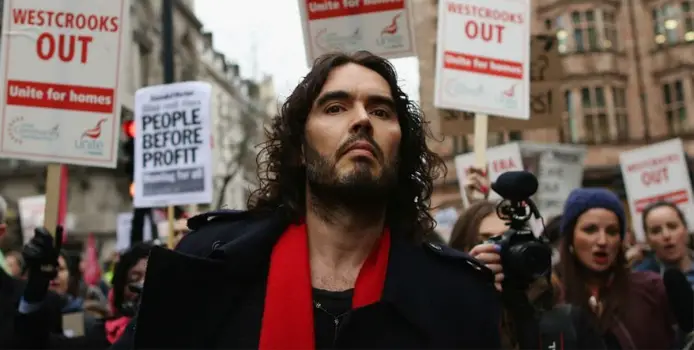United Kingdom

Fingers, the Indiegogo-funded short film from writer/director Alex Marx and producer Savannah James-Bayly, is a slick and stylish crime drama that blends Biblical themes with 1960s London glam. From the filmmakers’ own mouths: Fingers is a short crime drama based on the Biblical story of Salome and the martyrship of John the Baptist, reimagined in the murky underworld of a 1960s nightclub in London’s East End.
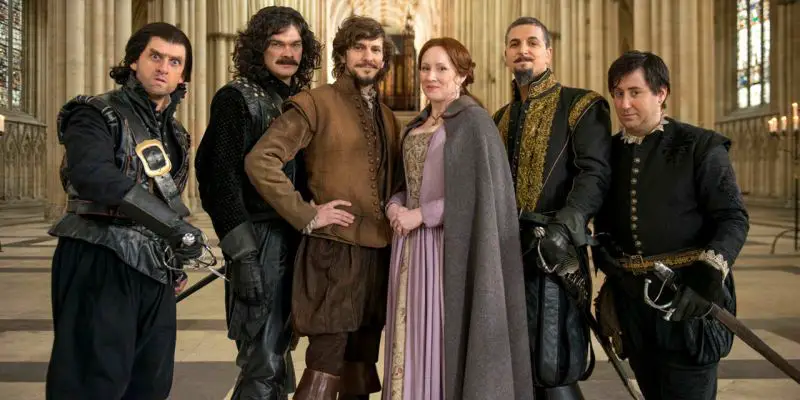
Bill is the first feature film from the comedy team behind Horrible Histories, a TV show which I have just this year become a huge fan of. For those of you not familiar with it, Horrible Histories is in theory a kid’s history show based on the books of Terry Deary. But what it actually is, is an incredibly funny and informative sketch show that appeals to adults and children alike.

A Syrian Love Story is the latest investigative documentary from award winning filmmaker-journalist Sean McCallister. Renowned for his hard-hitting documentaries which go further than others dare to, McCallister follows a Syrian family over a 5 year period – through love, separation, prison, war and freedom. Beginning an extra-ordinary journey, activists Raghda and Amer meet in their youth in a Syrian prison, detained for their positions as high profile anti-Assad activists.

Most of us are familiar with the story of Macbeth by William Shakespeare, a story so prevalent that people will not utter the name of ‘the Scottish play’ whilst in the theatre, as by ancient tradition it is said to be cursed. For those of you who are not familiar with the story, it is a tale of one man’s hunger for power in a tyrannical society, and how he is pushed further and further down a descending path of hopelessness and insanity by his wife, a group of witches, and his own consciousness. There have been many recreations of the play on stage and on screen, and this 2015 cinematic depiction of Shakespeare’s Macbeth, directed by Justin Kurzel and starring Michael Fassbender and Marion Contillard, is on a platform so high that the other depictions are unable to reach it.

From the minute of its inception I had high hopes for Legend. An earlier attempt at a biopic of the infamous Kray twins has largely been forgotten, starring as it did the brothers from Spandau Ballet. But this one, starring Tom Hardy as both Ronnie and Reggie, with a plethora of great British actors in supporting roles, looked promising.
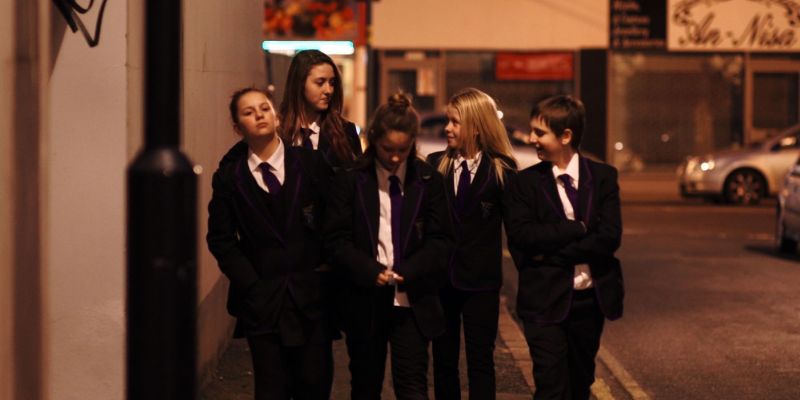
Low budget productions always have to come to terms to the fact they are not going to be able to offer proper cinematic spectacle on a minuscule budget. A Dozen Summers instead opts to be as deliberately amateurish as possible, giving it the distinctive feeling of a movie that the twelve year old protagonists would not only wish to make, but would be capable of making. It feels aimless, rambling at even a brief 82 minutes (eight of which are dedicated to elongated end credits), but proves near impossible to dislike despite all of its clear faults.
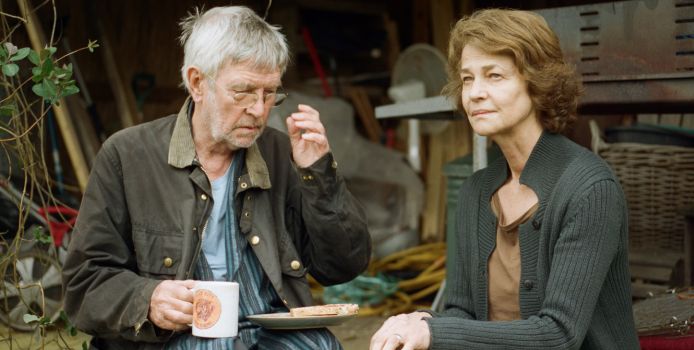
45 Years is unquestionably well-written and well-acted, to such a high degree that is literally impossible to argue otherwise. To say that Charlotte Rampling and Tom Courtenay give two of the most emotionally effective performances of their long and illustrious careers is equivalent to saying that the sky is blue and the world is round; it is so plainly obvious, arguing in its favour seems like a waste of time, as the greatness is clearly there for all to see. Emotionally engaging from the opening minutes On paper, the film feels like the opposite of director Andrew Haigh’s previous film Weekend; that film was about two men who meet and fall in love over the course of (you guessed it) a weekend, after a one night stand turns into something deeper.

In the previous two instalments of my speculative trilogy pondering the future of British cinema, I’ve explored how innovative, non-mainstream films will continue to get funded and whether or not filmmakers will change their style in order to get their films made. In this final article, the concluding chapter of this epic trilogy, I aim to explore how British films can get into British cinemas. If British films aren’t being funded due to worry about a lack of box office returns, is there any possible way for a business model that allows all British films the same wide releases as blockbusters in their home country?

Even though he’s often stereotyped as solely a director of inferior British gangster films, based on his first two releases Lock, Stock and Two Smoking Barrels and Snatch, Guy Ritchie is actually more of an experimental director than you may initially realise. Even though his early films were successful and enjoyable guilty pleasures, Ritchie had something of an insatiable need to be taken seriously, looking towards the European arthouse for inspiration. His third feature Swept Away, starring his then wife Madonna, was a remake of a satirical 1974 Italian film not widely known to international audiences.
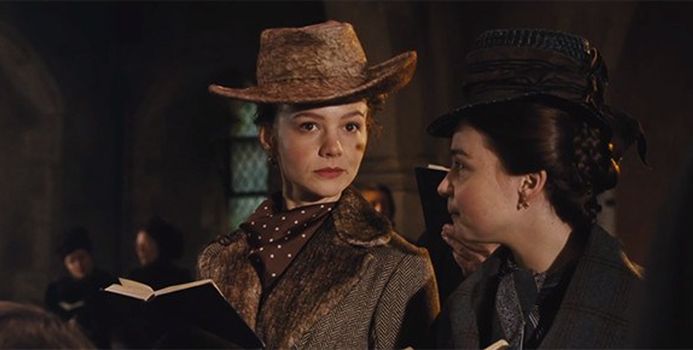
Under the last government, the UK film council (which supported the funding, production and distribution of British films) was scrapped, as prime minister David Cameron cited that the initiative “wasn’t supporting films people British people want to see, like Harry Potter”. Subsequently, we have been told this has made it far harder for British filmmakers to get their movies made. As David Cameron’s Conservative government have recently been re-elected into parliament (this time as the sole governing party; last time they were part of a coalition), it is time to examine what effect this will have on British filmmakers, both in terms of how they will be able to get their films made now there is a tighter grip on funding, as well as how it will effect the kinds of films they make.

Asif Kapadia isn’t the documentary filmmaker of our times, but he is one of the most timely. In the digital age where all information is online, he manages to make movies comprised almost entirely of footage that can be found on YouTube and somehow turn them into major events in documentary cinema. Since his (ever so slightly overrated) 2011 effort Senna, his style as a documentarian has stubbornly refused to change, yet the way he manipulates archive footage to create something new and horrifying is unparalleled, even if it frequently favours emotional manipulation over creating a deeper look at the self-destructive life of subject Amy Winehouse.
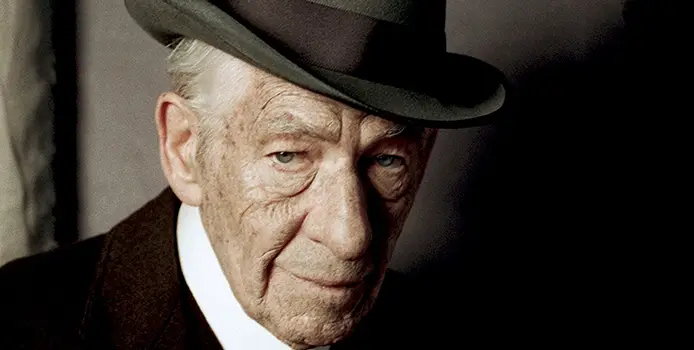
There is something so endlessly fascinating about the character of Sherlock Holmes that prevents him from ever becoming boring to audiences, no matter how different Arthur Conan Doyle’s detective creation is to the pop-culture tastes of the time. The source material is so undeniably entertaining that even if it gets revised as an action blockbuster, as seen in Guy Ritchie’s two recent movies, or transplanted into the modern day, on Steven Moffat’s BBC series, it never loses any of its original charm. No matter how unique a new adaptation of the stories may be, Doyle’s stories are so widely revered that nearly every adaptation of them remains faithful to the essence of the characters, even if they may take a few liberties.




